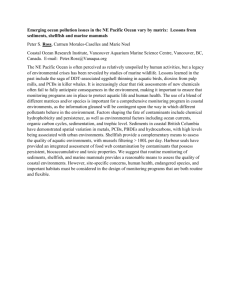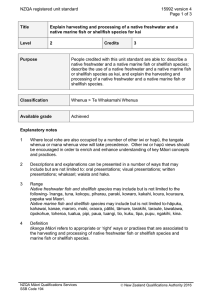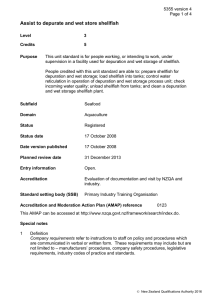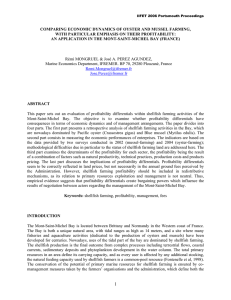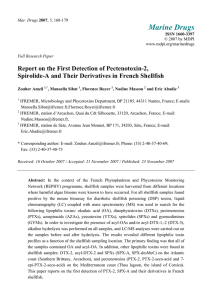Title: Aquaculture Economics Modelling Under A System Approach:
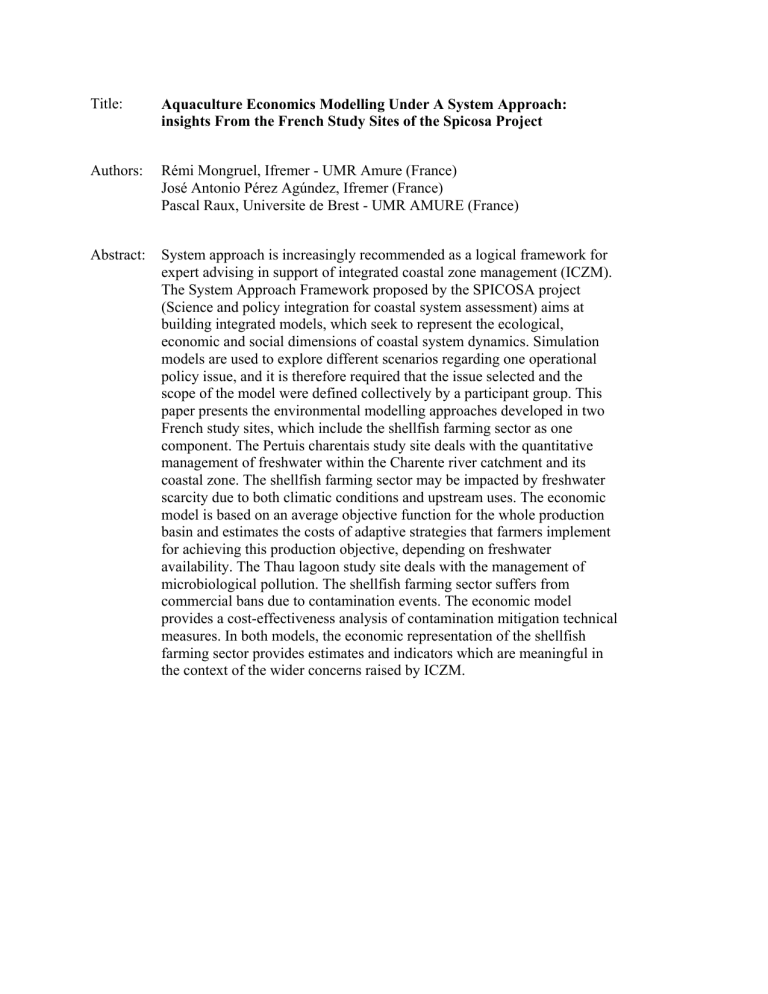
Title: Aquaculture Economics Modelling Under A System Approach: insights From the French Study Sites of the Spicosa Project
Authors: Rémi Mongruel, Ifremer - UMR Amure (France)
José Antonio Pérez Agúndez, Ifremer (France)
Pascal Raux, Universite de Brest - UMR AMURE (France)
Abstract: System approach is increasingly recommended as a logical framework for expert advising in support of integrated coastal zone management (ICZM).
The System Approach Framework proposed by the SPICOSA project
(Science and policy integration for coastal system assessment) aims at building integrated models, which seek to represent the ecological, economic and social dimensions of coastal system dynamics. Simulation models are used to explore different scenarios regarding one operational policy issue, and it is therefore required that the issue selected and the scope of the model were defined collectively by a participant group. This paper presents the environmental modelling approaches developed in two
French study sites, which include the shellfish farming sector as one component. The Pertuis charentais study site deals with the quantitative management of freshwater within the Charente river catchment and its coastal zone. The shellfish farming sector may be impacted by freshwater scarcity due to both climatic conditions and upstream uses. The economic model is based on an average objective function for the whole production basin and estimates the costs of adaptive strategies that farmers implement for achieving this production objective, depending on freshwater availability. The Thau lagoon study site deals with the management of microbiological pollution. The shellfish farming sector suffers from commercial bans due to contamination events. The economic model provides a cost-effectiveness analysis of contamination mitigation technical measures. In both models, the economic representation of the shellfish farming sector provides estimates and indicators which are meaningful in the context of the wider concerns raised by ICZM.



